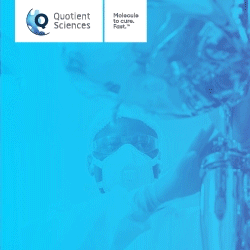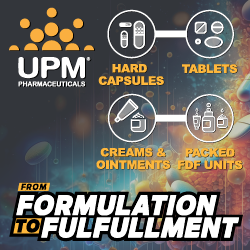RedHill Biopharma Provides Update on Ongoing Phase II & III Studies
RedHill Biopharma Ltd. recently provided an update on its ongoing Phase III and Phase II clinical studies with BEKINDA for the treatment of acute gastroenteritis and gastritis and for diarrhea-predominant irritable bowel syndrome (IBS-D), respectively.
BEKINDA is a proprietary, extended-release, once-daily oral pill formulation of the antiemetic drug ondansetron, targeting multiple gastrointestinal indications. A Phase III study with BEKINDA 24 mg for acute gastroenteritis and gastritis is ongoing in the US (the GUARD study). A Phase II study with BEKINDA 12 mg is also ongoing in the US for the treatment of diarrhea-predominant irritable bowel syndrome (IBS-D). Top-line results from both studies are expected in mid-2017.
The ongoing randomized, double-blind, placebo-controlled GUARD Phase III study with BEKINDA 24 mg for acute gastroenteritis and gastritis is being conducted at up to 30 sites in the US and is enrolling adults and children over the age of 12 who suffer from acute gastroenteritis and gastritis. 226 subjects, over two-thirds of the planned total of 320 subjects, have been enrolled in the study to date, and top-line results are expected in mid-2017.
The primary endpoint for the study is the absence of vomiting and the absence of the need for rescue medications or intravenous hydration after 30 minutes and through 24 hours after the first dose of the study medication. Secondary endpoints include, among others, frequency of vomiting, severity and time to resolution of nausea and time to resumption of normal activities.
As previously announced, in light of discussions with the FDA, RedHill believes that, subject to achieving highly significant positive results, the Phase III GUARD study may be sufficient as a single study to support potential future marketing applications in the US, conditional upon, among other things, future review and guidance from the FDA. BEKINDA is intended to provide patients with relief from nausea and vomiting symptoms for a full 24-hour period with a single oral tablet and, if approved, may also reduce the burden on health systems by reducing hospital readmissions. According to one estimate, there are over 179 million cases of gastroenteritis and gastritis annually in the US alone. The worldwide potential market for gastroenteritis and gastritis treatments is estimated to exceed $650 million annually.
The ongoing randomized, double-blind, placebo-controlled Phase II clinical study is intended to evaluate the safety and efficacy of BEKINDA 12 mg in adults over the age of 18 who suffer from IBS-D, at up to 16 clinical sites in the US. Approximately half of the total 120 planned subjects have been enrolled in the study to date, and top-line results are expected in mid-2017.
The primary endpoint for the study is the proportion of patients in each treatment group with response in stool consistency as compared to baseline, per FDA guidance definition. Secondary endpoints include the proportion of patients in each treatment group who are pain responders and the proportion of patients in each treatment group who are responders to the combined endpoints of stool consistency and pain, per FDA guidance definition.
IBS is one of the most common gastrointestinal disorders. It is estimated that at least 30 million Americans suffer from IBS, of which over 50% are cases of IBS-D. The US potential market for IBS-D treatments is estimated to exceed $1.3 billion by 2020. 5-HT3 antagonists such as ondansetron, the active pharmaceutical ingredient in BEKINDA, have been shown to slow intestinal transit time in humans. Alosetron (Lotronex), a 5-HT3 antagonist of the same class of drugs as ondansetron, has been approved for the treatment of women with severe chronic IBS-D but is under a restricted prescribing (REMS) program due to potential severe side effects. Ondansetron, approved by the FDA as an oncology support antiemetic, has demonstrated activity in IBS-D in preliminary studies and, in light of its good safety profile, RedHill believes that BEKINDA, if approved, has the potential to be a preferred once-daily treatment for a broad segment of patients suffering from IBS-D.
BEKINDA is a proprietary, bimodal extended-release (24 hours) oral pill formulation of ondansetron covered by several issued and pending patents. A Phase III clinical study of BEKINDA 24-mg formulation for acute gastroenteritis and gastritis (the GUARD study) is ongoing in the US, with top-line results expected in mid-2017. A Phase II study with BEKINDA 12-mg formulation is ongoing in the US for the treatment of diarrhea-predominant irritable bowel syndrome (IBS-D), with top-line results expected in mid-2017. RedHill is also pursuing a potential marketing approval of BEKINDA in Europe for the prevention of chemotherapy and radiotherapy-induced nausea and vomiting (CINV and RINV, respectively), pending additional feedback from EU member states as to whether additional clinical and CMC work is required.
RedHill Biopharma Ltd. is a biopharmaceutical company headquartered in Israel, primarily focused on the development and commercialization of late clinical-stage, proprietary, orally administered, small molecule drugs for the treatment of gastrointestinal and inflammatory diseases and cancer.
Total Page Views: 1483












